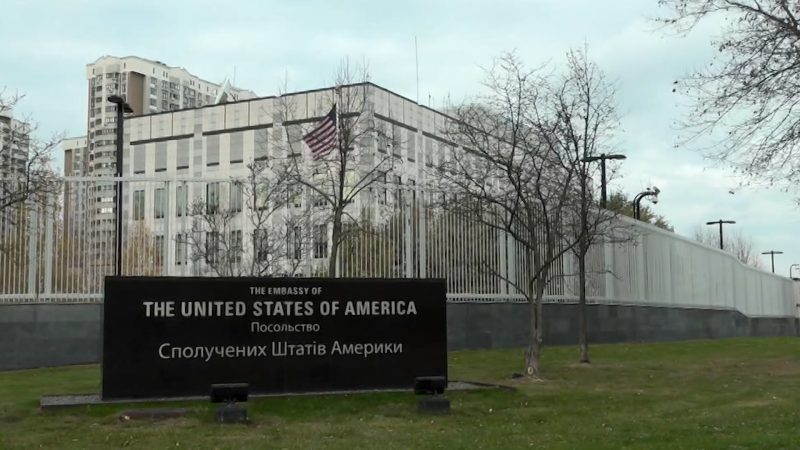Kyiv, Ukraine
CNN
—
It is a very specific and high-profile warning, so you would expect the information behind it to have been quite precise.
The US Embassy in Kyiv has not closed since it relocated during the opening months of Russia’s invasion of Ukraine in 2022. But on Wednesday, it announced a one-day closure, citing “specific information of a potential significant air attack.” Kyiv endures air attacks on an almost nightly basis – but the US step suggested a fear of being potentially targeted.
The Greek, Italian, and Spanish embassies followed suit, causing the Ukrainian foreign ministry to plead that its allies behave on the 1001st day of the war, as they had done on the previous thousand days, and not let their anxieties overcome them. Ukrainian defense officials even derided a fake warning circulated widely on Telegram claiming a massive Russian air attack, as being crude Russian-produced misinformation.
A senior advisor to Ukrainian President Volodymyr Zelensky, Mykhailo Podolyak, told CNN the apparent anxiety after years of war should be put down to Russia’s bid to use “elements of psychological influence.”
“[Moscow] have one instrument, which is to scare. This have always been a classic element of Russian politics. It’s blackmail and panic they want to create. I would like our partners to be more careful as to the information coming from Russia,” he said.
Residents in Kyiv struggled to reconcile the specific nature of the US warnings, with the quotidian daily threat they face. On Wednesday morning alone, there was a 45-minute air raid alert, and then another that lasted two and a half hours.
In the central Maidan Square, where a sea of flags are each marked with the name of a dead soldier, Anya planted one in memory of her father. She is used to air raids in her hometown of Krivyh Rih, but Wednesday felt different.
“I will be honest, we went down to the basement during every air raid siren today,” she said. “It was really scary indeed.”
Every flag in the square is a story of this war’s trauma and turmoil. Her father died in late October after five months in a coma from frontline injuries, she said. “I want peace very much, but want things to be as they used to be — without Russia. I just want all this to be over.”
Threats and talk of peace are deeply personal across Ukraine, yet the geopolitical risk is growing too. The US Embassy felt compelled to clarify its closure was not linked to the nuanced changes in Russia’s nuclear doctrine, loudly detailed by the Kremlin on Tuesday, insisting it stemmed from the fear of drone or missile attack.
Yet both statements showed how far this war is escalating: a US diplomatic mission saying it feared a direct Russian attack, then specifying at least this would not be nuclear.
It would be a grave and perhaps foolhardy move by the Kremlin to directly attack American government assets in Ukraine now. It would necessitate a severe American response that could trigger a wider war between NATO and Russia. Above all, it would likely tie the hands of US President-elect Donald Trump, who seems keen on stopping “the killing” and striking a deal with Russia. Putin would be wise to hold off a few months.
It is important to remember much of Russia’s domestic narrative insists Moscow is already in a wider war against the US and NATO. That is an inaccurate reflection of the proxy fight, in which NATO is arming Ukraine to wage in its own defense. But it is a story told by the Kremlin to Russians, intended to excuse their appalling performance over a thousand days, fighting a war that was only meant to last a few weeks.
While Russia is the aggressor, strategically it is difficult to see how Moscow can continue to endure the overt Western escalation against its territory without trying to assert some sort of deterrence again. They are slowly finding all the red lines the Kremlin head seems to lay down evaporate in the heat.
Kyiv will likely remain on edge. Moscow might inflict damage on a civilian target where Westerners are known to congregate — a major hotel, or district in the capital. Putin is unlikely to view his slow success on the frontline — and the looming change in the White House — as marking a moment where the tide is turning against him. Rather, he may see the next two months as a test of his patience and resolve, with clear rewards ahead.

